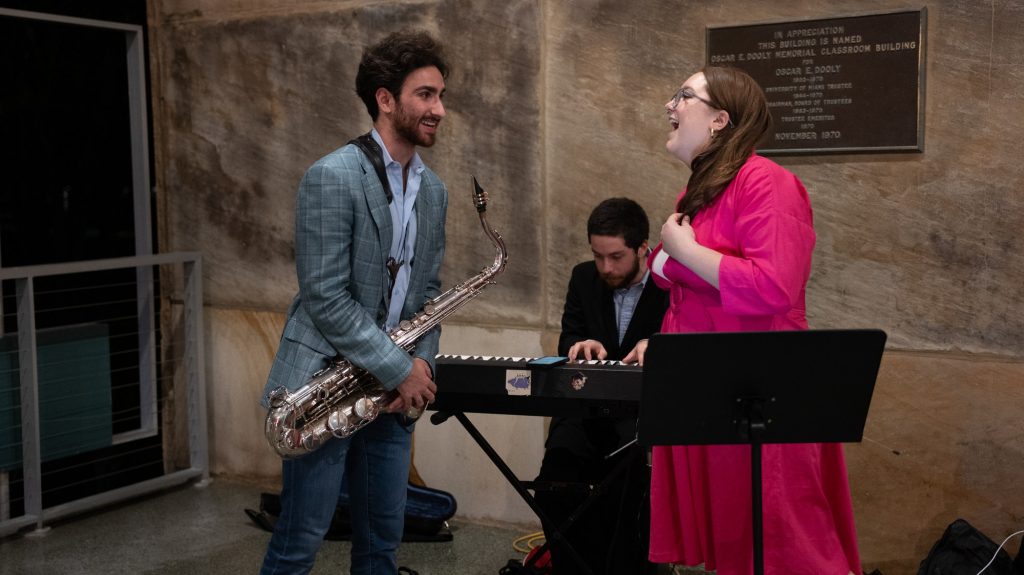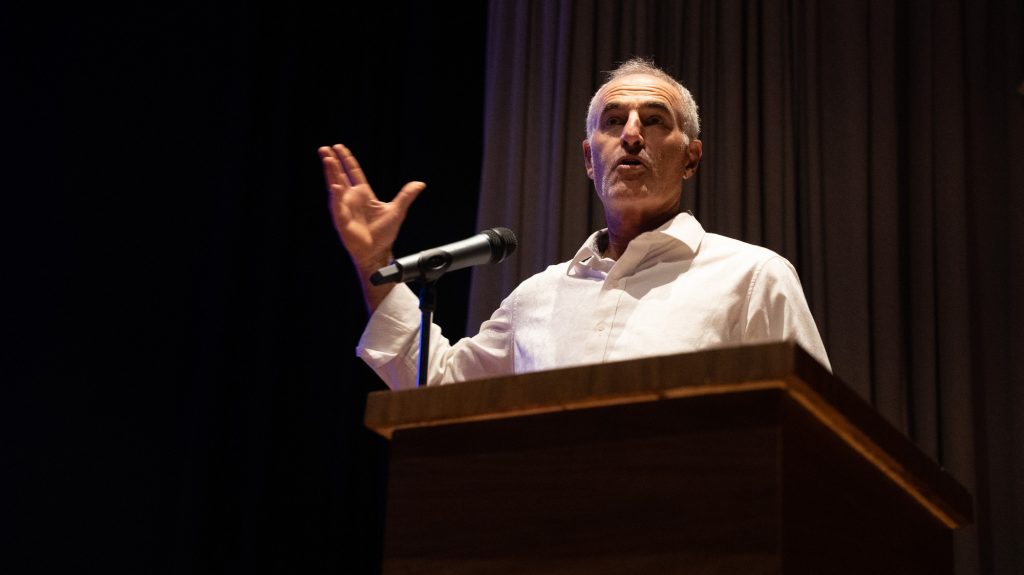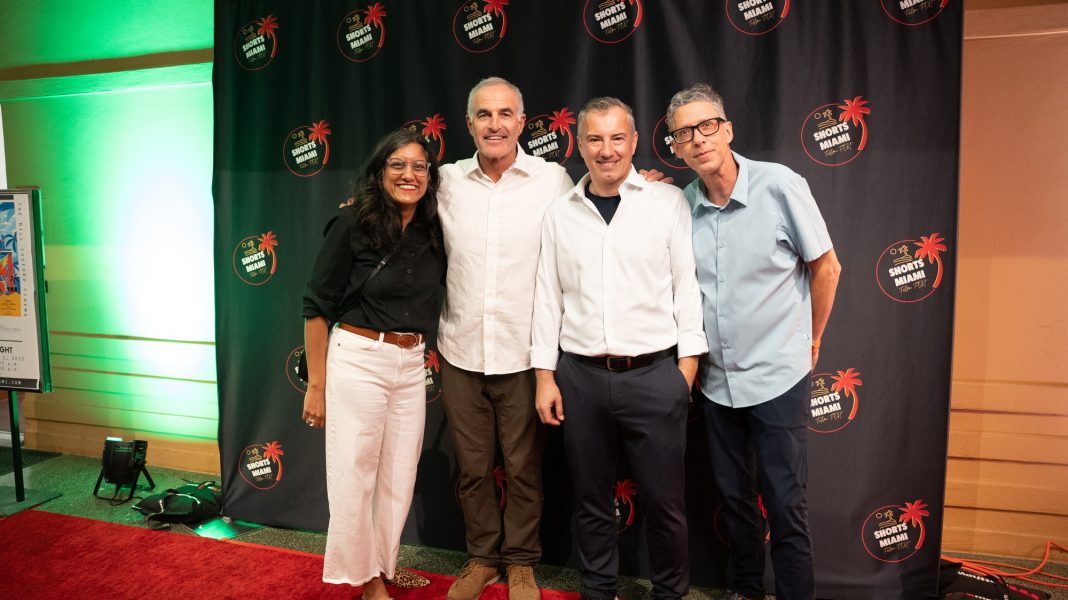Picture this: You’re standing outside the Cosford Cinema, eating empanadas and sipping drinks as a pianist, saxophonist and vocalist performs underneath fairy lights. All around you are festival attendees in conversation with movie directors and actors, while others take photos on a red carpet outside the theater.
This was the scene on Friday, Feb. 3 after the first night of the Shorts Miami International Film Festival (SMIFF). The two hours were filled with 10 narrative short films that coaxed laughter, tears and a lot of applause.
Melanie Anderson, a graduate student studying screenwriting, called it a “beautiful night” and praised the amount of heart and love put into each film. Her favorite was Sergi Martí Maltas’ “The Bathtub,” which won the award for Best Narrative.
“I loved the lighting. The narrative was so heartfelt and warm, and the twist ending — it all came together,” Anderson said.
The Spanish film featured beautiful cinematography and a gripping, hopeful narrative that defied expectations in the best way possible.
“I really enjoyed Rechna Varma’s film the most. The cinematography and sound and everything was just perfect,” Key’Azhia Hoyle, a graduate student studying motion pictures, said. “I got a great experience overall from the whole entire film festival.”

Night one, however, ended with more than one winner. Álvaro G. Company and Meka Ribera received the Norton Herrick Center for Motion Picture Studies Award for their narrative short, “Table for 3.”
With a plot that reflected real-life issues like food insecurity and climate change, “Table for 3” showed its audience that films can deliver a message without being too on-the-nose.
The remaining two nights recognized three more outstanding filmmakers. Kevin Mannens won Best Documentary Award for “Marsh Clouds: The oysters of Harris Neck,” Andrew Kelleher won the Jury Award and Cheers for “The Beatles Vs The Stones” and Ana Adzic won Best Film of the Focus on Serbia screening for her film “Way Back.”
The newly annual festival aims to showcase emerging and established filmmakers worldwide in both short form narrative and documentary filmmaking. Submissions came from the U.S. and countries all over the world, including Spain, France, Italy, Iran, Mexico, Brazil, Portugal, Bosnia and Herzegovina, Serbia and the United Kingdom.
“The mission of the festival resonates really well with the vision we have for our school,” Karin Wilkins, the Dean of the UM School of Communications, said in her opening remarks. “It begins with promoting and celebrating quality creative production and also contributing to community connection and fostering significant social impact.”

“60 Minutes” producer Ira Rosen brought the idea for the three-day festival to UM School of Communication faculty Antonio Mora. Comm school professor Sam Terilli soon hopped on board, and the trio brought the idea to Wilkins.
“We sat down and had this wonderful conversation about their great idea for creating a festival to celebrate short films, documentaries, narratives and so on,” Wilkins said during her opening remarks on Friday night.
Film department chair Konstantia Kontaxis and professor and Coordinator of Motion Pictures M.F.A Ed Talavera were the final piece of the puzzle in moving the festival forward.
Wilkins mentioned how the worldwide shutdown of theaters during the height of COVID-19 delayed the start of the festival. Despite this setback, however, the festival’s first year did exactly what it set out to do — celebrate the joy of storytelling through film.
“Our narratives don’t merely reflect, but they refract our realities. I see media as a prism: We’re looking at the prism as filtering sound and light through narrative. We then experience in space … and in time,” Wilkins said.
Starting off its premiere year strong, SMIFF will return next year with even more films to celebrate and awards to give. Until then, students can support cinematic arts at the U by attending screenings at the Cosford Cinema, including the free weekly film screenings hosted by the Cinematic Arts Commission.
“We’re celebrating the power to create our stories with respect for diversity of perspectives and this need that we have to share and build our world for a better future,” Wilkins said.






